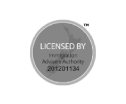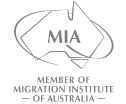Australia’s workplace culture blends collaboration, innovation, and a strong emphasis on work-life balance, but 2025 brings unique complexities for skilled migrants navigating hybrid work models, AI integration, and evolving expectations around inclusion. This guide examines the current landscape and equips professionals with strategies to thrive in Australia’s dynamic work environments.
The Evolving Australian Workplace Landscape
Hybrid Work Realities
The 2025 workplace operates in a tension between remote flexibility and mandated office attendance, with 63% of Australian employees now working hybrid schedules[2]. Key considerations include:
- Fluid Scheduling: Employers increasingly adopt results-based performance metrics over rigid attendance tracking
- Digital Presenteeism: Over-reliance on virtual communication tools creating new forms of workplace surveillance
- Proximity Bias: Remote workers facing reduced visibility for promotions despite comparable productivity[5]
Skilled migrants should prioritize employers with structured hybrid policies that guarantee equitable opportunities for remote and in-office staff.
Psychological Safety Imperatives
New national guidelines mandate psychological risk assessments as part of workplace health and safety obligations. Migrants should look for:
- Clear anti-bullying frameworks with multilingual reporting channels
- Mental health first aid officers in all medium-to-large organizations
- Culturally sensitive conflict resolution protocols addressing language barriers
Key Cultural Trends Shaping 2025
Intentional Culture Design
Top employers now treat workplace culture as a strategic asset rather than an organic byproduct. This manifests through:
- Quarterly culture audits measuring psychological safety indicators
- AI-driven sentiment analysis of internal communications
- Cross-functional culture committees with migrant representation
AI Integration Protocols
With 78% of Australian workplaces deploying AI tools for hiring and performance management[5], migrants encounter:
- Automated visa compliance checks during recruitment
- Real-time translation systems in meetings (required for government contracts)
- Bias-mitigation requirements for algorithmic promotion systems
Proactive migrants should seek employers providing AI literacy programs to demystify these tools.
Sustainable Work Practices
The 2025 Workplace Sustainability Standard mandates:
- Four-day work trial options for all full-time roles
- Climate-controlled productivity targets adjusting for extreme heat days
- Carbon-neutral commuting subsidies averaging AUD$1,200 annually
Retention Strategies for Migrant Talent
Australian employers leading in retention[3] now offer:
- Skills Future Proofing: Guaranteed annual training budgets of AUD$5,000+
- Cultural Navigation Partnerships: Six-month mentorship programs pairing migrants with cultural brokers
- Family Integration Support: Spouse employment assistance and school transition teams
Notably, 92% of Australia’s Best Workplaces in Technology provide migration-specific retention bonuses structured as:
| Retention Period | Bonus Structure | Tax Advantage |
|---|---|---|
| 0-12 months | AUD$10k housing grant | Tax-free under skilled migrant concessions |
| 13-24 months | 10% salary boost | Concessional tax rate via salary packaging |
| 25+ months | Equity shares | CGT discounts after 36 months |
Navigating Cultural Nuances
Communication Norms
- Directness Gradient: Australian managers increasingly adopt Dutch-style candid feedback while maintaining diplomatic framing
- Meeting Rituals: Mandatory 5-minute “connection rounds” before agenda discussions
- Digital Etiquette: Response time expectations codified in employment contracts (e.g., 4-hour SLA for Teams messages)
Hierarchy and Decision-Making
The 2025 workplace features flatter structures with:
- 360-degree feedback influencing 40% of promotion decisions
- Reverse mentoring programs pairing junior migrants with executives
- Consent-based decision making replacing majority vote in 31% of ASX200 firms[5]
Migrants should leverage Australia’s dispute resolution framework which guarantees free mediation services within 72 hours of conflict escalation.
Future-Proofing Your Transition
Successful integration requires proactive measures:
- Pre-Arrival Culture Analytics: Utilize employer-provided Culture Fit Assessments to identify potential friction points
- Portable Credential Systems: Enroll in blockchain-verified skill registries recognized nationally
- Community Capital Building: Join state-funded Professional Integration Networks (PINs) offering localized insights
As Australia’s workplace culture continues evolving amid technological and social change, skilled migrants who strategically navigate these dynamics position themselves to lead in the nation’s priority sectors. The 2025 emphasis on measurable psychological safety, hybrid work calibration, and AI-augmented collaboration creates both challenges and unprecedented opportunities for those prepared to engage with Australia’s cultural complexity.










